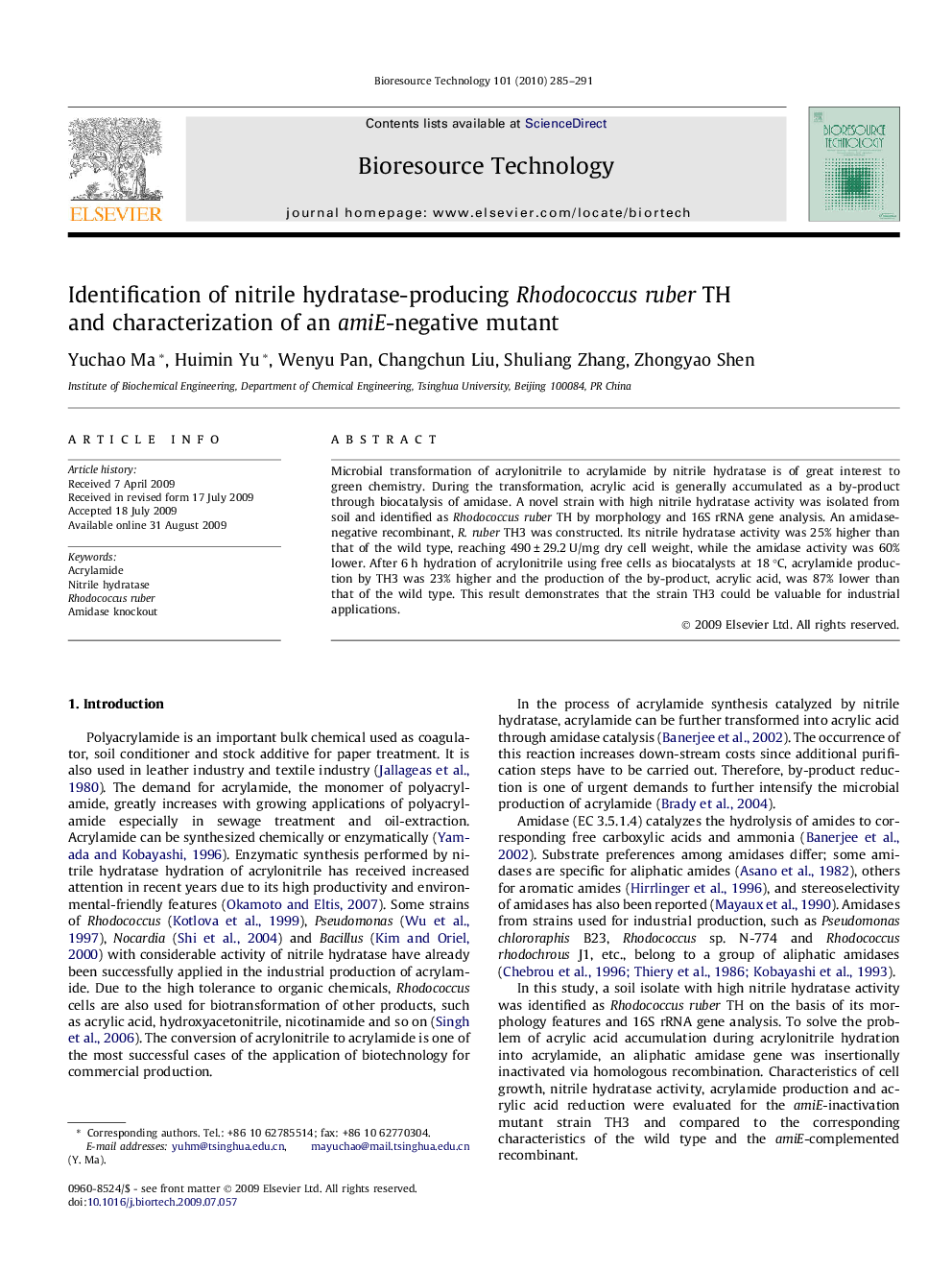| Article ID | Journal | Published Year | Pages | File Type |
|---|---|---|---|---|
| 683108 | Bioresource Technology | 2010 | 7 Pages |
Microbial transformation of acrylonitrile to acrylamide by nitrile hydratase is of great interest to green chemistry. During the transformation, acrylic acid is generally accumulated as a by-product through biocatalysis of amidase. A novel strain with high nitrile hydratase activity was isolated from soil and identified as Rhodococcus ruber TH by morphology and 16S rRNA gene analysis. An amidase-negative recombinant, R. ruber TH3 was constructed. Its nitrile hydratase activity was 25% higher than that of the wild type, reaching 490 ± 29.2 U/mg dry cell weight, while the amidase activity was 60% lower. After 6 h hydration of acrylonitrile using free cells as biocatalysts at 18 °C, acrylamide production by TH3 was 23% higher and the production of the by-product, acrylic acid, was 87% lower than that of the wild type. This result demonstrates that the strain TH3 could be valuable for industrial applications.
